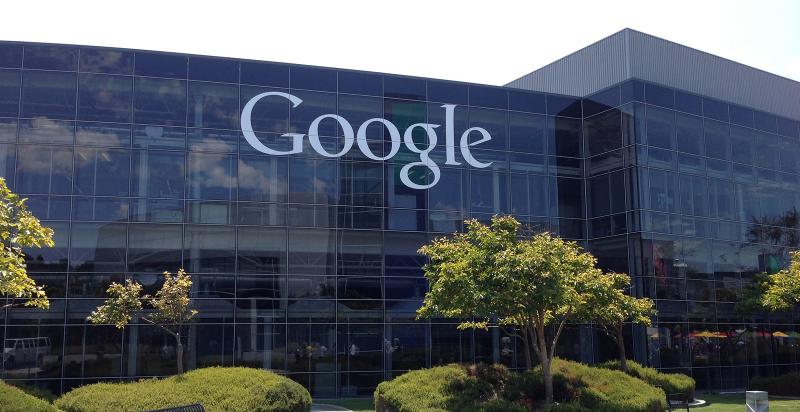Justice Department Files Long-Awaited Antitrust Suit Against Google
Category: News & Politics
Via: vic-eldred • 4 years ago • 5 commentsBy: Brent Kendall and Rob Copeland (WSJ)



The Justice Department filed an antitrust lawsuit Tuesday alleging that Google engaged in anticompetitive conduct to preserve monopolies in search and search advertising that form the cornerstones of its vast conglomerate.
The long-anticipated case, filed in a Washington, D.C., federal court, marks the most aggressive U.S. legal challenge to a company’s dominance in the tech sector in more than two decades, with the potential to shake up Silicon Valley and beyond. Once a public darling, Google attracted considerable scrutiny over the past decade as it gained power but has avoided a true showdown with the government until now.
The department alleged that Google, a unit of Alphabet Inc., GOOG 1.01% is maintaining its status as gatekeeper to the internet through an unlawful web of exclusionary and interlocking business agreements that shut out competitors. The government alleged that Google uses billions of dollars collected from advertisements on its platform to pay mobile-phone manufacturers, carriers and browsers, like Apple Inc.’s Safari, to maintain Google as their preset, default search engine.
The upshot is that Google has pole position in search on hundreds of millions of American devices, with little opportunity for any competitor to make inroads, the government alleged.
The lawsuit also took aim at arrangements in which Google’s search application is preloaded, and can’t be deleted, on mobile phones running its popular Android operating system. The government alleged Google unlawfully prohibits competitors’ search applications from being preloaded on phones under revenue-sharing arrangements.
Google owns or controls search distribution channels accounting for about 80% of search queries in the U.S., the lawsuit said. That means Google’s competitors can’t get a meaningful number of search queries and build a scale needed to compete, leaving consumers with less choice and less innovation, and advertisers with less competitive prices, the lawsuit alleged.
Google didn’t immediately respond to a request for comment, but the company has said its competitive edge comes from offering a product that billions of people choose to use each day. Alphabet’s shares opened Tuesday up roughly 1%, ahead of the broader market, after The Wall Street Journal first reported news of the impending suit.
The Mountain View, Calif., company, sitting on a $120 billion cash hoard, is unlikely to shrink from a legal fight. The company has argued that it faces vigorous competition across its different operations and that its products and platforms help businesses small and large reach new customers.
Google’s defense against critics of all stripes has long been rooted in the fact that its services are largely offered to consumers at little or no cost, undercutting the traditional antitrust argument around potential price harms to those who use a product.
The lawsuit follows a Justice Department investigation that has stretched more than a year , and comes amid a broader examination of the handful of technology companies that play an outsize role in the U.S. economy and the daily lives of most Americans.
A loss for Google could mean court-ordered changes to how it operates parts of its business, potentially creating new openings for rival companies. The Justice Department’s lawsuit didn’t specify particular remedies; that is usually addressed later in a case. One Justice Department official said nothing is off the table, including possibly seeking structural changes to Google’s business.
A victory for Google could deal a huge blow to Washington’s overall scrutiny of big tech companies, potentially hobbling other investigations and enshrining Google’s business model after lawmakers and others challenged its market power. Such an outcome, however, might spur Congress to take legislative action against the company.
The case could take years to resolve, and the responsibility for managing the suit will fall to the appointees of whichever candidate wins the Nov. 3 presidential election.
The challenge marks a new chapter in the history of Google, a company formed in 1998 in a garage in a San Francisco suburb—the same year Microsoft Corp. was hit with a blockbuster government antitrust case accusing the software giant of unlawful monopolization. That case, which eventually resulted in a settlement, was the last similar government antitrust case against a major U.S. tech firm.
Google started as a simple search engine with a large and amorphous mission “to organize the world’s information.” But over the past decade or so it has developed into a conglomerate that does far more than that. Its flagship search engine handles more than 90% of global search requests, some billions a day, providing fodder for what has become a vast brokerage of digital advertising. Its YouTube unit is the world’s largest video platform, used by nearly three-quarters of U.S. adults.
Google has been bruised but never visibly hurt by various controversies surrounding privacy and allegedly anticompetitive behavior, and its growth has continued almost entirely unchecked. In 2012, the last time Google faced close antitrust scrutiny in the U.S., the search giant was already one of the largest publicly traded companies in the nation. Since then, its market value has roughly tripled to almost $1 trillion.
The company takes on this legal showdown under a new generation of leadership. Co-founders Larry Page and Sergey Brin , both billionaires, gave up their management roles last year, handing the reins solely to Sundar Pichai , a soft-spoken, India-born engineer who earlier in his career helped present Google’s antitrust complaints about Microsoft to regulators.
The chief executive has in his corner Messrs. Page and Brin, who remain on Alphabet’s board and in effective control of the company thanks to shares that give them, along with former Chief Executive Eric Schmidt , disproportionate voting power.
Executives inside Google are quick to portray their divisions as mere startups in areas—like hardware, social networking, cloud computing and health—where other Silicon Valley giants are further ahead. Still, that Google has such breadth at all points to its omnipresence.
European Union regulators have targeted the company with three antitrust complaints and fined it about $9 billion, though the cases haven’t left a big imprint on Google’s businesses there, and critics say the remedies imposed on it have proved underwhelming.
In the U.S., nearly all state attorneys general are separately investigating Google, while three other tech giants— Facebook Inc., Apple and Amazon.com Inc. —likewise face close antitrust scrutiny. And in Washington, a bipartisan belief is emerging that the government should do more to police the behavior of top digital platforms that control widely used tools of communication and commerce.

 Article is LOCKED by author/seeder
Article is LOCKED by author/seeder




A loss for Google would be a victory for the first amendment.

Google’s billionaire co-founders Sergey Brin, left, and Larry Page, shown in 2008, gave up their management roles but remain in effective control of the company.
PHOTO: PAUL SAKUMA/ASSOCIATED PRESS
They look like school boys, don't they?
49 state AGs have filed suit before the DoJ and will most likely look to combine their cases with this one. I'm calling it now... Google will pay a bunch of money, say some nice things and be put on probation for a number of years, but nothing will really change. Just like the last Microsoft anti-trust case.
I remember holding out for as long as possible and using my pre-google search engine instead of falling prey to google. That was so long ago that I can’t even remember what the search engine was called. Alas it was not meant to be. Google efficiently snuffed out its competition.
Bing is just as good as google.
https://www.bing.com/search?q=Bing&PC=U316&FORM=CHROMN
I dont know if they are more ethical though, lol.
The more money you have, the greater the teflon coatings you have.